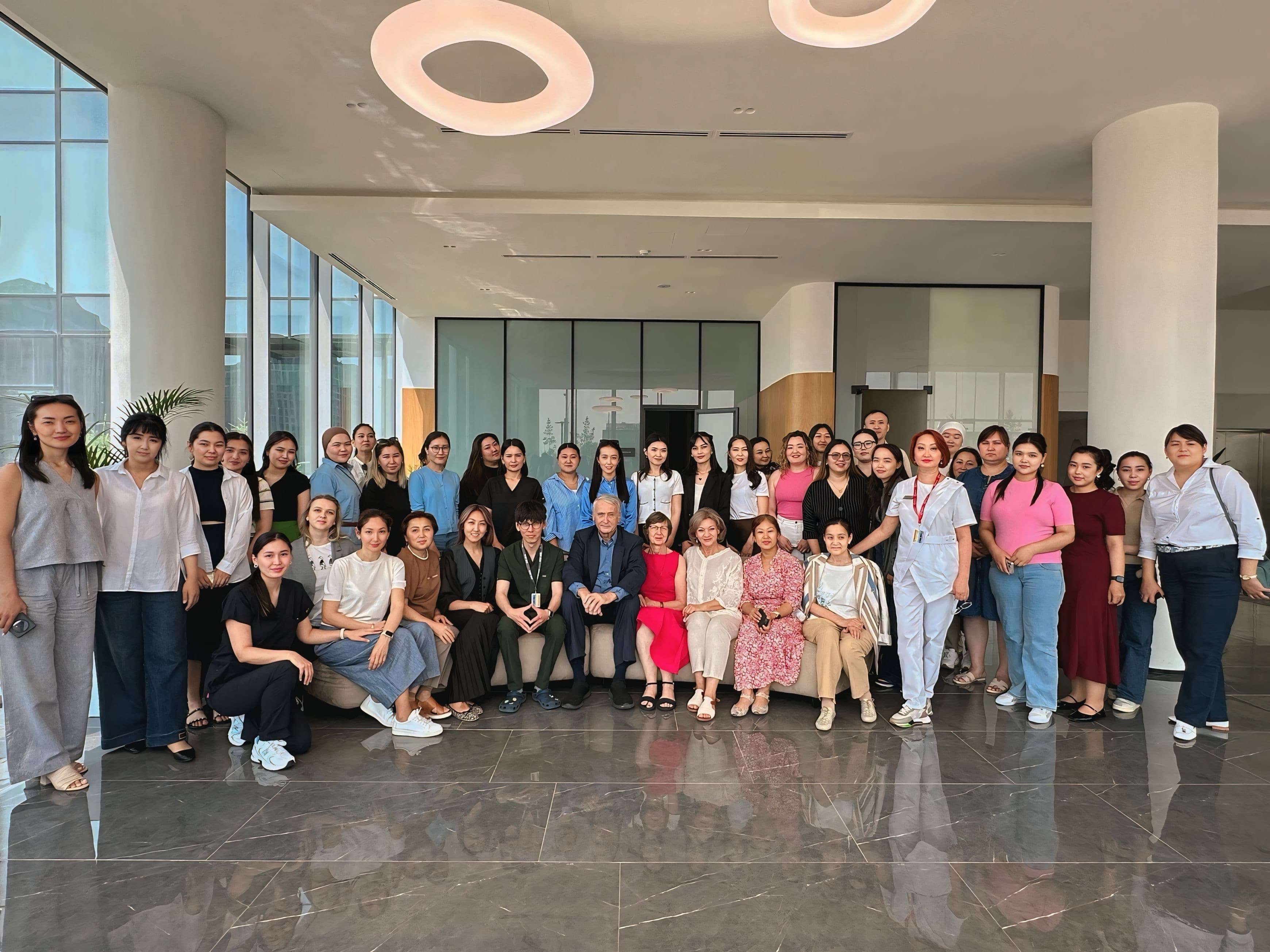On the initiative of Astana Medical University and in anticipation of Medical Workers’ Day, a series of lectures and workshops was held as part of the university’s academic mobility program, featuring international expert Dr. Alexander Svidzinsky, MD, Professor (Berlin, Germany). The event took place at the Institute of Reproductive Medicine (IRM Astana) and brought together faculty members, students, and university staff.
Alexander Svidzinsky is the Director of the Molecular Genetics Laboratory of Polymicrobial Infections and Biofilms at Humboldt University in Berlin. He has extensive international experience in the field of molecular diagnostics of infectious diseases, biofilms, and women’s reproductive health.
During the session, Professor Svidzinsky presented the innovative RigiNam method, developed for the early diagnosis of biofilm syndrome – a subtle yet highly dangerous condition that may lead to pregnancy complications such as preterm birth, miscarriage, and septic states.
The RigiNam method enables the detection of hidden polymicrobial infections at early stages of pregnancy and supports personalized treatment strategies, significantly reducing risks for both the mother and the unborn child.
“We consider the implementation of RigiNam an important step in the modernization of reproductive medicine in Kazakhstan. This is not merely a technology – it is a philosophy of personalized care for women’s health”, noted Professor Svidzinsky.
The international expert also conducted a workshop on microscopic examination of biofilms, demonstrating what biofilm syndrome looks like at the cellular level and what diagnostic capabilities the new method provides.
Additionally, participants were introduced to the work of the largest embryology laboratory in Central Asia, equipped with advanced incubators featuring time-lapse imaging systems and artificial intelligence for embryo development analysis.
According to Aigul Myrzabekova, Head of the Department of Obstetrics and Gynecology №1 at Astana Medical University, the introduction of modern approaches to early diagnostics and prevention of gynecological diseases will enhance the reproductive health of women in Kazakhstan.


